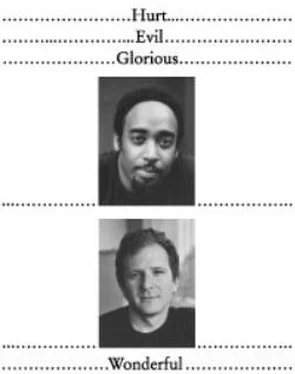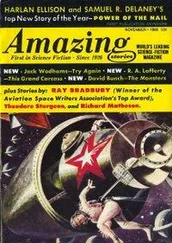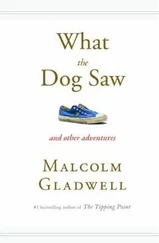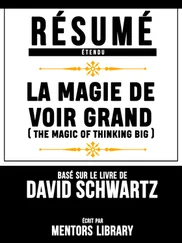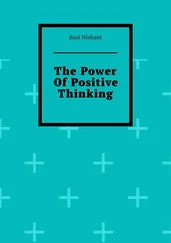Malcolm Gladwell - Blink - The Power of Thinking Without Thinking
Здесь есть возможность читать онлайн «Malcolm Gladwell - Blink - The Power of Thinking Without Thinking» весь текст электронной книги совершенно бесплатно (целиком полную версию без сокращений). В некоторых случаях можно слушать аудио, скачать через торрент в формате fb2 и присутствует краткое содержание. Жанр: Культурология, Психология, на английском языке. Описание произведения, (предисловие) а так же отзывы посетителей доступны на портале библиотеки ЛибКат.
- Название:Blink: The Power of Thinking Without Thinking
- Автор:
- Жанр:
- Год:неизвестен
- ISBN:нет данных
- Рейтинг книги:3 / 5. Голосов: 1
-
Избранное:Добавить в избранное
- Отзывы:
-
Ваша оценка:
- 60
- 1
- 2
- 3
- 4
- 5
Blink: The Power of Thinking Without Thinking: краткое содержание, описание и аннотация
Предлагаем к чтению аннотацию, описание, краткое содержание или предисловие (зависит от того, что написал сам автор книги «Blink: The Power of Thinking Without Thinking»). Если вы не нашли необходимую информацию о книге — напишите в комментариях, мы постараемся отыскать её.
Blink: The Power of Thinking Without Thinking — читать онлайн бесплатно полную книгу (весь текст) целиком
Ниже представлен текст книги, разбитый по страницам. Система сохранения места последней прочитанной страницы, позволяет с удобством читать онлайн бесплатно книгу «Blink: The Power of Thinking Without Thinking», без необходимости каждый раз заново искать на чём Вы остановились. Поставьте закладку, и сможете в любой момент перейти на страницу, на которой закончили чтение.
Интервал:
Закладка:
There is a powerful lesson in classical music’s revolution. Why, for so many years, were conductors so oblivious to the corruption of their snap judgments? Because we are often careless with our powers of rapid cognition. We don’t know where our first impressions come from or precisely what they mean, so we don’t always appreciate their fragility. Taking our powers of rapid cognition seriously means we have to acknowledge the subtle influences that can alter or undermine or bias the products of our unconscious. Judging music sounds like the simplest of tasks. It is not, any more than sipping cola or rating chairs or tasting jam is easy. Without a screen, Abbie Conant would have been dismissed before she played a note. With a screen, she was suddenly good enough for the Munich Philharmonic.
And what did orchestras do when confronted with their prejudice? They solved the problem, and that’s the second lesson of Blink. Too often we are resigned to what happens in the blink of an eye. It doesn’t seem like we have much control over whatever bubbles to the surface from our unconscious. But we do, and if we can control the environment in which rapid cognition takes place, then we can control rapid cognition. We can prevent the people fighting wars or staffing emergency rooms or policing the streets from making mistakes.
“If I was coming to see a work of art, I used to ask dealers to put a black cloth over it, and then whip it off when I walked in, and blam, so I could have total concentration on that particular thing,” says Thomas Hoving. “At the Met, I’d have my secretary or another curator take a new thing we were thinking of buying and stick it somewhere where I’d be surprised to see it, like a coat closet, so I’d open the door and there it would be. And I’d either feel good about it or suddenly I’d see something that I hadn’t noticed before.” Hoving valued the fruits of spontaneous thinking so much that he took special steps to make sure his early impressions were as good as possible. He did not look at the power of his unconscious as a magical force. He looked at it as something he could protect and control and educate—and when he caught his first glimpse of the kouros, Hoving was ready.
The fact that there are now women playing for symphony orchestras is not a trivial change. It matters because it has opened up a world of possibility for a group that had been locked out of opportunity. It also matters because by fixing the first impression at the heart of the audition—by judging purely on the basis of ability—orchestras now hire better musicians, and better musicians mean better music. And how did we get better music? Not by rethinking the entire classical music enterprise or building new concert halls or pumping in millions of new dollars, but by paying attention to the tiniest detail, the first two seconds of the audition.
When Julie Landsman auditioned for the role of principal French horn at the Met, the screens had just gone up in the practice hall. At the time, there were no women in the brass section of the orchestra, because everyone “knew” that women could not play the horn as well as men. But Landsman came and sat down and played—and she played well. “I knew in my last round that I had won before they told me,” she says. “It was because of the way I performed the last piece. I held on to the last high C for a very long time, just to leave no doubt in their minds. And they started to laugh, because it was above and beyond the call of duty.” But when they declared her the winner and she stepped out from behind the screen, there was a gasp. It wasn’t just that she was a woman, and female horn players were rare, as had been the case with Conant. And it wasn’t just that bold, extended high C, which was the kind of macho sound that they expected from a man only. It was because they knew her. Landsman had played for the Met before as a substitute. Until they listened to her with just their ears, however, they had no idea she was so good. When the screen created a pure Blink moment, a small miracle happened, the kind of small miracle that is always possible when we take charge of the first two seconds: they saw her for who she truly was.
Notes
Margolis published his findings in a triumphant article in Scientific American: Stanley V. Margolis, “Authenticating Ancient Marble Sculpture,” Scientific American 260, no. 6 (June 1989): 104-110.
The kouros story has been told in a number of places. The best account is by Thomas Hoving, in chapter 18 of False Impressions: The Hunt for Big Time Art Fakes (London: Andre Deutsch, 1996). The accounts of the art experts who saw the kouros in Athens are collected in The Getty Kouros Colloquium: Athens, 25-27 May 1992 (Malibu: J. Paul Getty Museum and Athens: Nicholas P. Goulandris Foundation, Museum of Cycladic Art, 1993). See also Michael Kimmelman, “Absolutely Real? Absolutely Fake?” New York Times, August 4, 1991; Marion True, “A Kouros at the Getty Museum,” Burlington Magazine 119, no. 1006 (January 1987): 3-11; George Ortiz, Connoisseurship and Antiquity: Small Bronze Sculpture from the Ancient World (Malibu: J. Paul Getty Museum, 1990), 275-278; and Robert Steven Bianchi, “Saga of the Getty Kouros,” Archaeology 47, no. 3 (May/June 1994): 22-25.
The gambling experiment with the red and blue decks is described in Antoine Bechara, Hanna Damasio, Daniel Tranel, and Antonio R. Damasio, “Deciding Advantageously Before Knowing the Advantageous Strategy,” Science 275 (February 1997): 1293-1295. This experiment is actually a wonderful way into a variety of fascinating topics. For more, see Antonio Damasio’s Descartes’ Error (New York: HarperCollins, 1994), 212.
The ideas behind “fast and frugal” can be found in Gerd Gigerenzer, Peter M. Todd, and the ABC Research Group, Simple Heuristics That Make Us Smart (New York: Oxford University Press, 1999).
The person who has thought extensively about the adaptive unconscious and has written the most accessible account of the “computer” inside our mind is the psychologist Timothy Wilson. I am greatly indebted to his wonderful book Strangers to Ourselves: Discovering the Adaptive Unconscious (Cambridge, Mass.: Harvard University Press, 2002). Wilson also discusses, at some length, the Iowa gambling experiment.
On Ambady’s research on professors, see Nalini Ambady and Robert Rosenthal, “Half a Minute: Predicting Teacher Evaluations from Thin Slices of Nonverbal Behavior and Physical Attractiveness,” Journal of Personality and Social Psychology 64, no. 3 (1993): 431-441.
John Gottman has written widely on marriage and relationships. For a summary, see www.gottman.com. For the thinnest slice, see Sybil Carrиre and John Gottman, “Predicting Divorce Among Newlyweds from the First Three Minutes of a Marital Conflict Discussion,” Family Process 38, no. 3 (1999): 293-301.
You can find more information on Nigel West at www.nigelwest.com.
On whether marriage counselors and psychologists can accurately judge the future of a marriage, see Rachel Ebling and Robert W. Levenson, “Who Are the Marital Experts?” Journal of Marriage and Family 65, no. 1 (February 2003): 130-142.
On the bedroom study, see Samuel D. Gosling, Sei Jin Ko, et al., “A Room with a Cue: Personality Judgments Based on Offices and Bedrooms,” Journal of Personality and Social Psychology 82, no. 3 (2002): 379-398.
Читать дальшеИнтервал:
Закладка:
Похожие книги на «Blink: The Power of Thinking Without Thinking»
Представляем Вашему вниманию похожие книги на «Blink: The Power of Thinking Without Thinking» списком для выбора. Мы отобрали схожую по названию и смыслу литературу в надежде предоставить читателям больше вариантов отыскать новые, интересные, ещё непрочитанные произведения.
Обсуждение, отзывы о книге «Blink: The Power of Thinking Without Thinking» и просто собственные мнения читателей. Оставьте ваши комментарии, напишите, что Вы думаете о произведении, его смысле или главных героях. Укажите что конкретно понравилось, а что нет, и почему Вы так считаете.
